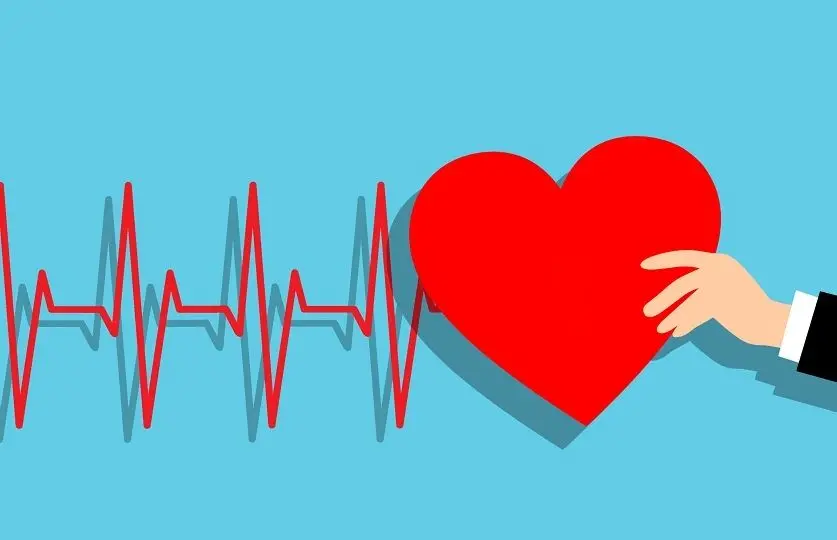Contents
Tachycardia, or palpitations, occurs for many reasons. An increase in heart rate is observed during sports, unexpected fright, nervous tension, feverish conditions. When the cause of the pathology is eliminated, the heart rate returns to normal. One of the most common causes of tachycardia is alcohol intake.
Causes of a strong heartbeat after alcohol
Palpitations after alcohol are caused by the complex effect of ethanol on blood vessels and the brain. Alcohol is instantly absorbed into the blood through the mucous surface of the oral cavity and the wall of the stomach. First, alcohol acts as an antispasmodic and relaxes the vascular walls, which leads to increased blood flow. If the dose of alcohol does not exceed 50-70 g, this effect is observed within an hour, and then the cardiovascular system returns to normal.
Further intake of alcohol leads to the opposite effect – the walls of the vessels spasm, and the heart has to work more intensively so that a sufficient amount of oxygen enters the organs and tissues. At the same time, ethanol acts on the hypothalamus, the regulator of heart functions. Increased secretion of corticosteroids and increased secretion of adrenaline lead to increased tachycardia. The pulse rate rises from the normal rate of 80 bpm to 110-150 bpm.
The largest study on the effect of alcohol on heart rate was conducted by scientists from the University Hospital of Munich at the Oktoberfest festival in 2015. More than three thousand volunteers under the age of 35 took part in the experiment. All of them installed an application on their smartphones that recorded their heart rate. The degree of intoxication was determined using a breathalyzer. As a result, it turned out that various kinds of arrhythmias were observed in 30,5% of the participants in the experiment, the most common violation is sinus tachycardia, which occurs when the heart is insufficiently filled with blood.

Consequences of cardiac arrhythmias
Sinus tachycardia is the body’s response to stress. In the normal state, such a response of the heart to the load is considered absolutely normal, since it is of a short-term nature and does not cause discomfort. The danger arises with repeated prolonged tachycardia, when rhythm disturbances appear at rest. A rapid heartbeat may indicate the presence of cardiovascular diseases and problems with the endocrine system, and in the case of alcohol, provoke their occurrence.
Consequences of prolonged tachycardia:
- bradycardia;
- increased blood pressure;
- wear and tear of the heart muscle, leading to heart failure and myocardial infarction;
- fainting due to lack of oxygen;
- asthenia due to lack of tissue nutrition.
The situation is complicated by the fact that many do not feel changes in heart rate and seek help when the pathology has already passed into a chronic disease. Long-term alcohol abuse also provokes the development of alcoholic cardiomyopathy, which in the last stages is practically untreatable.
First aid for tachycardia caused by alcohol
A rapid heartbeat after alcohol is accompanied by additional symptoms: dizziness, a feeling of lack of air, darkening in the eyes. In this case, first of all, it is necessary to stop drinking alcohol and try to neutralize ethanol: take activated charcoal, adsorbents.
In a serious condition, you should not try to clear the stomach, as spasms cause an increased load on the vessels.
First aid:
- release the chest from tight clothing;
- provide fresh air into the room;
- take a horizontal position;
- place a folded blanket or pillow under your feet so that they are above the level of your head.
Breathing exercise works effectively, improving the supply of cells with oxygen. You need to take a deep breath, hold your breath for a few seconds, then slowly exhale the air. Repeat steps 7-10 times.
With the appearance of threatening symptoms (feeling of a sinking heart, fainting, high blood pressure), you need to call an ambulance. Chronic tachycardia needs serious treatment. Therapy depends on the results of the examination. Beta-blockers, sedatives, potassium and calcium preparations, restorative and soothing herbal preparations are prescribed. The development of chronic conditions will require the patient to take medication daily for the rest of his life, so it is important to see a doctor at the first sign of pathology.
Attention! Self-medication can be dangerous, consult your doctor.









